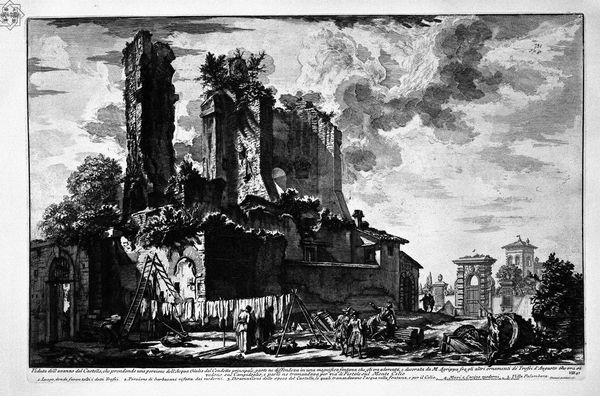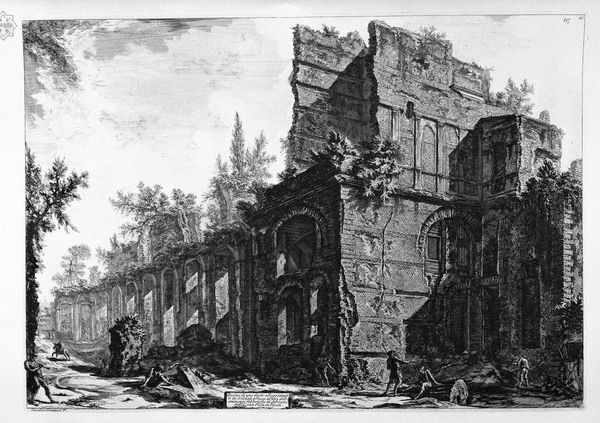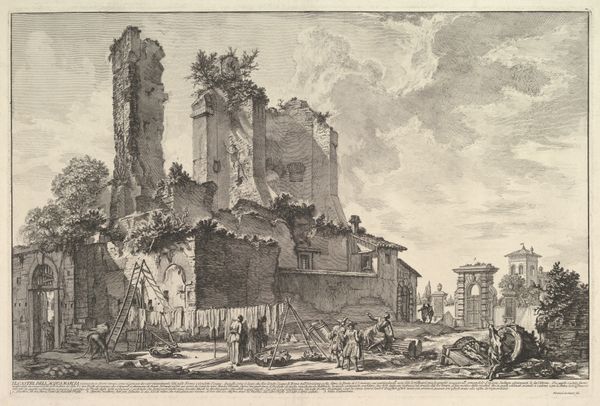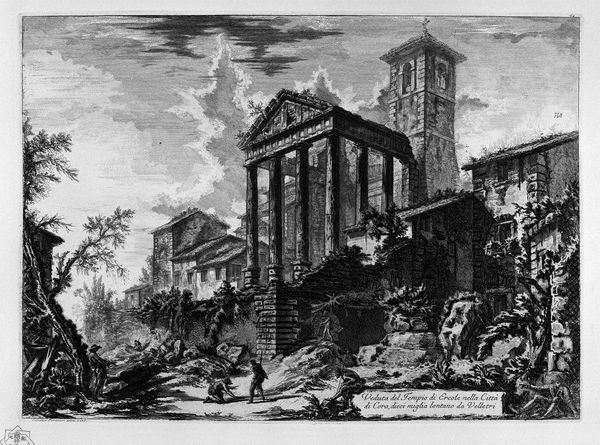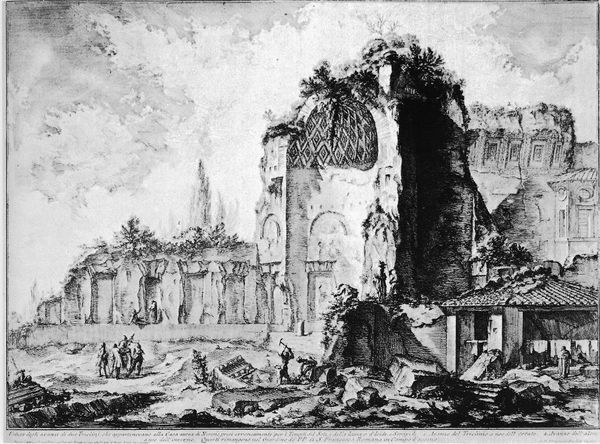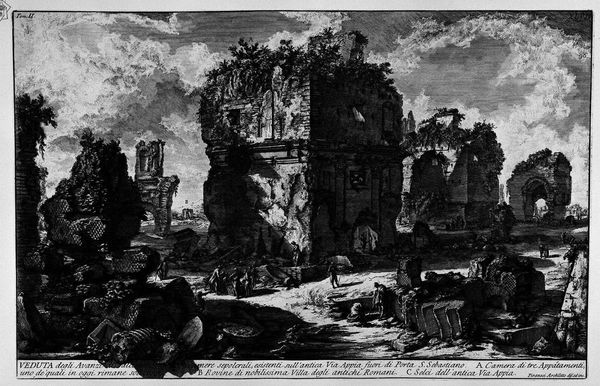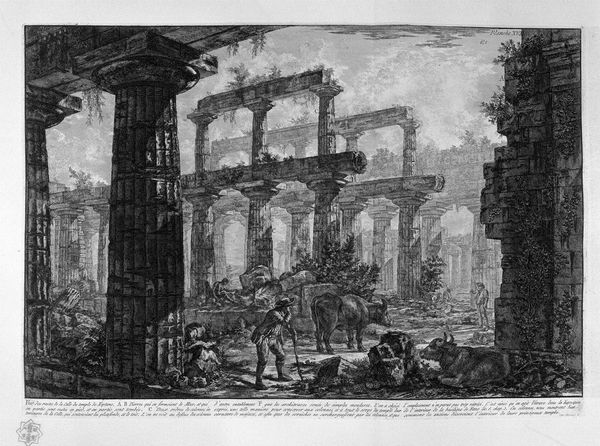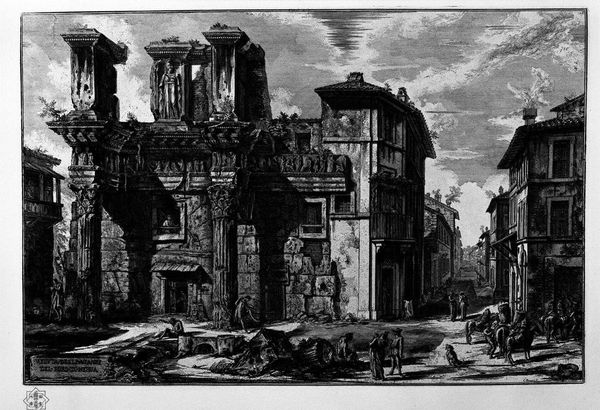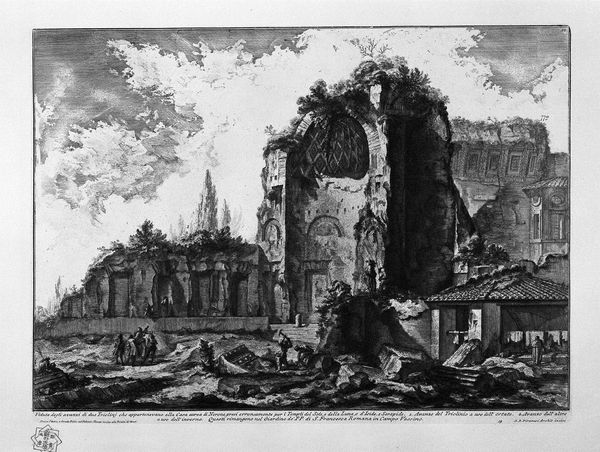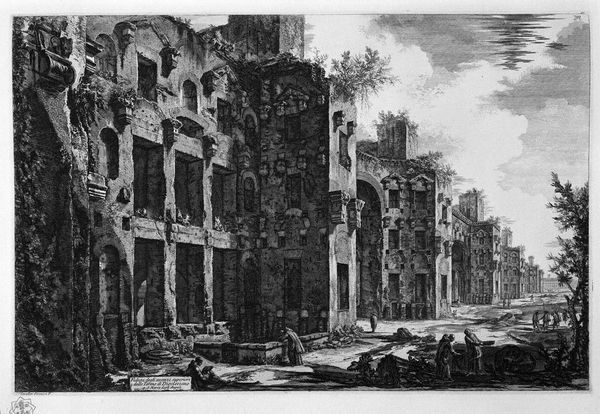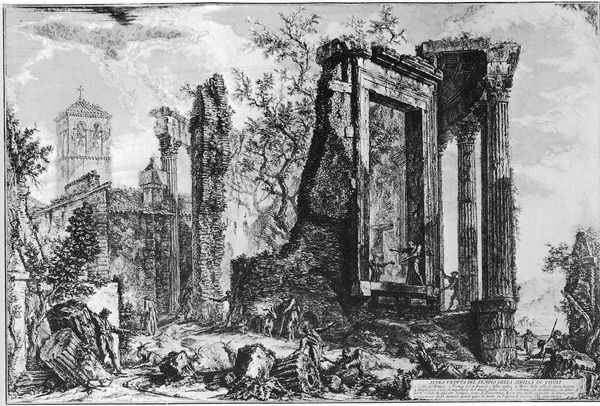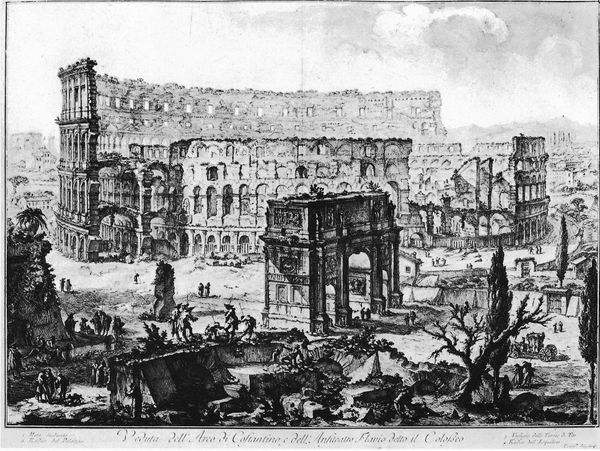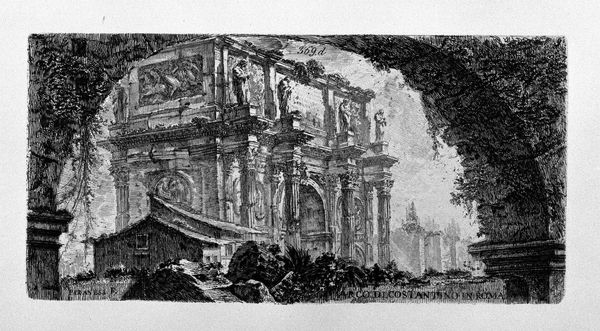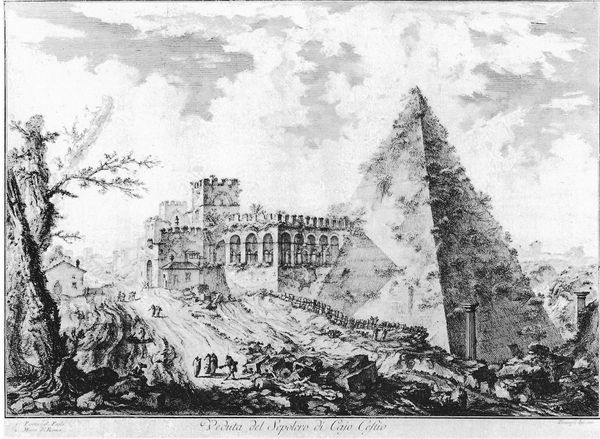
print, etching
#
baroque
# print
#
etching
#
landscape
#
cityscape
#
italian-renaissance
Copyright: Public domain
Giovanni Battista Piranesi created 'Vedute di Roma' using etching, a printmaking process that democratized image-making in the 18th century. Piranesi's technique involved coating a metal plate with wax, then drawing through it with a sharp needle to expose the metal. Immersing the plate in acid then eats away at the exposed lines, creating grooves that hold ink. The plate is then pressed onto paper, transferring the image. The stark contrast of blacks and whites, achieved through controlled biting and layering of lines, creates depth and drama, emphasizing the weight and texture of the ancient ruins. Piranesi wasn't just documenting Rome; he was also participating in a burgeoning market for picturesque views, catering to the Grand Tourists who sought souvenirs of their travels. The material conditions of printmaking, like the labor-intensive process of etching and printing, are critical to understanding the social context of Piranesi's work. He skillfully combined artistry with entrepreneurial savvy, blurring the lines between fine art and commercial enterprise.
Comments
No comments
Be the first to comment and join the conversation on the ultimate creative platform.
